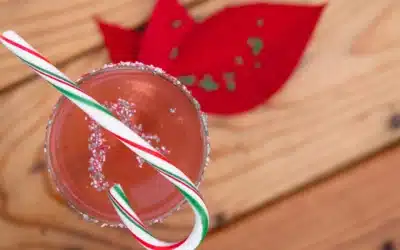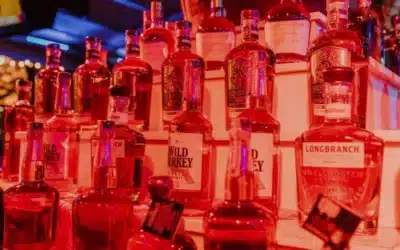Tequila as we all know and love (sometimes hate, you know who you are) is an alcoholic drink iconic for being the party starter of any good event. Carried in bars, restaurants and event spaces worldwide, it is unique for its distinctive taste as well as aroma. For many popular cocktails it is an essential ingredient to make a tasteful drink, but what exactly makes tequila so memorable? In this article we will be diving deep into what tequila is made from, how the alcohol came to be in addition to how it is produced. We’ll also be looking at some of the ways that this traditional beverage has evolved over time to meet the increasing demand for it’s “intoxicating” flavor.
Where And When Was Tequila Invented?
Said to have first been invented by Aztec civilizations in Mexico over 500 years ago, tequila was initially derived from a drink called ‘pulque‘ which was made from fermented agave plant juice. It was used as a means for people to come together to celebrate life in both religious ceremonies and social gatherings. Despite the sense it would make for this early civilization to have all the credit for its invention, there are also records of the drink having entered the picture as a result of Spanish settlers in Mexico who used the alcohol for very similar reasons.
What Is Tequila Made From?
Tequila is made from a plant native to Mexico, known as blue agave. What makes it so special is the nectar that is produced from the plant is 1.5 times as sweet as sugar and also has a lower glycemic index level. Once liquified, it is then distilled and aged in oak barrels for a minimum of two months, resulting in what is commonly referred to as ‘silver’, or un-aged tequila. This process can then be extended to create what is known as ‘gold’ or aged tequila but that is purely up to the manufacturer. In addition, some varieties of it are produced by adding caramel coloring and other flavorings such as fruit juices or syrups depending on the preferred flavor profile. Nevertheless, all types of tequila must follow a rule of containing at least 51% blue agave extract and an alcohol content between 35-55% for maximum authenticity. Primarily made from the juice extracted from blue agave plants, tequila is a fermented and distilled liquid that attains its delectable favor after being aged in oak barrels.
How Has Tequila Evolved Over The Years
Becoming increasingly popular has its ups and downs. With increased familiarity comes a greater demand for product needing to be met. In order to meet the requests that came flooding in, production methods and ingredients began to adapt, changing tastes and preferences. The result of such was a number of tequila variations to the blue agave plant. Blanco tequila, for example, is unaged and bottled just weeks after distillation; this type of tequila is typically more robust and fragrant compared to other varieties. Reposado tequila on the other hand is aged for at least two months but no more than 12 in oak barrels. This extended process gives it a milder flavor due to the tannins extracted from the wood. Añejo tequila is then aged for more than one year in oak barrels, lending it a smooth complexity with hints of wood and spice. Finally, Extra Añejo tequilas are those that have been aged for at least 3 years in oak barrels; this variety is characterized by its mellow flavor profile that provides subtle notes of walnut, cinnamon and caramel. Thus, what started as an alcoholic beverage made only one way had evolved into many different types to offer the masses variety and nuanced flavors based on the length of their aging process.
In conclusion, Tequila has been around for hundreds of years with its roots stemming as far back as the Aztec civilizations in Mexico. Made by distilling agave sugars into an alcoholic beverage it can be enjoyed neat or used to create cocktails providing a unique flavor. Whilst competing with other spirits in drinking culture, tequila remains a favorite amongst those looking for an exciting beverage to be enjoyed in a variety of different ways so whether you’re new to it or have been enjoying it for years, your newfound understanding of the drink will help you appreciate each sip even more!
To see a list of upcoming events at The Wharf Fort Lauderdale, click here.
Details: The Wharf Fort Lauderdale, 20 W Las Olas Blvd, Fort Lauderdale; WharfFTL.com. (954) 372-7606.

Upcoming Events
Related Articles
Tequila Cocktails For Every Occasion
Tequila cocktails are an excellent way to add a festive flair to any occasion. From margaritas and...
10 Christmas Cocktails To Spice Up Your Holiday Season
Ho-Ho-Ho! It's that time of the year again when the Christmas trees are dusted off, festive...
The History Of Scotch
Are you ready for a journey through time and taste? To explore the depths of one of history's...





